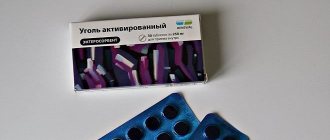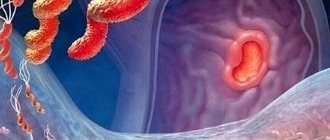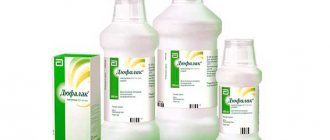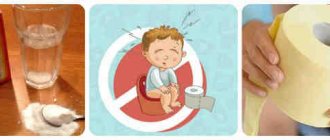Patients constantly suffering from heartburn try to find a remedy that is affordable, effective in use, and fast-acting. To fulfill all conditions, Ranitidine is perfect for heartburn. Indeed, in this condition, a person’s health worsens and his appetite disappears. The medicine is used to treat diseases in the gastrointestinal tract: ulcers, gastritis, and other serious diseases.
The product is freely available in every pharmacy. But it is worth noting that taking any medication without consulting a doctor can lead to the opposite results! Instead of improving health, a person will create undesirable consequences.
Effect of ranitidine on heartburn
The entry of food and acid from the stomach into the esophagus causes heartburn, but cannot be the main source of the phenomenon. The reason that provoked the occurrence of the reflux phenomenon lies in damage to the internal organs:
- Overeating promotes stretching of the organ and its overflow. The stomach, increasing in size, is unable to function normally.
- The motor activity of the tract is noticeably reduced, which leads to stagnation of food and other undesirable consequences. Food remains in the stomach without moving further through the channels.
- The acid-base balance in the stomach is disturbed and an acidic environment predominates in the organ, which negatively affects the condition of the mucous membrane and the lower part of the esophagus.
Let's consider the actions performed by the drug when it enters the body.
Neutralization of acid
The medication belongs to a group called histamine cell receptor blocker. The effect is on the internal walls of the organ, where the H2 components are located. The blocked cell receptor is responsible for the production of the acidic component of gastric secretions. The presence of juice is necessary; in addition to its digestive functions, it destroys pathogenic microbes and infections.
As a rule, there are no negative effects on the walls of the stomach. However, the mucous membrane of the esophagus is not prepared and not adapted to counteract hydrochloric acid, therefore, when the secretion gets on the walls of the canal, a person experiences heartburn. The esophagus receives a particularly severe burn when the contents of the digestive organ are highly acidic. Ranitidine removes residual acid from the esophagus and neutralizes the harmful component and reduces its volume in the stomach.
Reduced acid production
If acidity is normal, then the acidic component activates the substance pepsinogen, which turns into the active digestive enzyme pepsin. If this substance enters the esophagus, it has the same irritating effect as hydrochloric acid. Ranitidine affects cells that produce hydrochloric acid, reduces production and reduces the quantitative content. It was noted that the protective mucous layer of the organ continues to be produced.
Restorative function
It has been proven that the drug Ranitidine not only relieves acidity and helps get rid of heartburn, entering the esophagus and stomach, it helps restore damaged areas of the mucous membrane.
How to take ranitidine?
Ranitidine is available in the form of tablets, effervescent tablets and granules, and syrup for oral administration. It is usually taken once a day before bedtime or 2-4 times a day. To prevent the symptoms that cause heartburn, it is taken 30-60 minutes before eating.
Ranitidine should be taken exactly as prescribed by your doctor. You cannot independently change the dosage or frequency of administration per day.
Dosing ranitidine in the form of syrup is necessary only using the measuring cup that comes with the package.
Ranitidine effervescent tablets and granules should be dissolved in one glass of water, approximately 180-240 ml.
Purpose
The initial use of the drug is the treatment of ulcerative phenomena in the gastrointestinal tract. Then, after research, the medication began to be used not only as an anti-ulcer drug, but also for the treatment of burning in the thoracic region and to eliminate the symptoms of other diseases of the internal organs responsible for the digestive process.
Today, the use of Ranitidine is aimed at eliminating the following ailments:
- Ulcer. The disease usually affects two organs at the same time: the stomach and the nearby duodenum. Damage to the mucous membrane leads to the appearance of small foci with an inflammatory process. The medicine is used during periods of exacerbation of diseases.
- Damage to the esophagus. Esophagitis is a disease of the irritated mucous membrane of the canal as a result of regular reflux of food debris and acidic components.
- Damage to the pancreas with many ulcerative phenomena, the so-called. Zollinger-Ellison syndrome. The disease occurs due to increased acidity, which provokes an increase in the secretion of hydrochloric acid.
- Ulcers of the digestive organs formed due to severe stress. Also, taking medications can cause the appearance of foci of inflammation. Drugs such as antibiotics, aimed at destroying pathogenic flora, first entering the stomach, have a negative effect on the condition of the protective layer of the organ.
- Gastritis. The period of exacerbation of the disease is characterized by the occurrence of spasms in the epigastrium, heartburn and belching with a sour taste in the mouth. Ranitidine is also used to treat Mendelssohn's syndrome: the leakage of stomach acid into the respiratory system when anesthesia is administered.
Proper use for heartburn
The dosage and duration of use are prescribed by the doctor after receiving test results, examinations and based on the individual characteristics of the patient’s body.
- To reduce the intensity of exacerbation of peptic ulcers in the internal organs, accompanied by a strong burning sensation in the chest, use Ranitidine in the following dosages: for adults, take 1-2 tablets per day. The maximum daily dose is 3 tablets. The drug is strong.
- It is possible to take the medication for preventive purposes, before an exacerbation occurs. No more than 1 tablet per day. It is advisable to take it at night.
- When symptoms of inflammation of the pancreas appear, with increased volumes of gastrin production, take 3 tablets of the drug 3 times a day. If necessary and after consultation with a doctor, the dosage may be increased.
- Adverse manifestations in the postoperative period. It is possible that after surgery the mucous membrane of the organ is damaged. Then prescribe 1 tablet, drink 2 times a day. In this case, the course of treatment reaches 1 month.
- Prevention of peptic ulcers due to nerves and prevention of internal bleeding - use intravenous administration of the drug. The procedure is performed in a hospital. Prescribe, depending on the patient’s condition, 50-100 ml, observing a frequency of 8 hours.
- You can get rid of heartburn that occurs against the background of physiological disorders not associated with diseases - take Ranitidine 1 pill twice a day. Positive feedback from every patient.
Use during pregnancy
Numerous studies conducted on many pregnant women confirm that Ranitidine helps combat the debilitating burning sensation in the chest. At the same time, no negative effects on the growing fetus were noticed. It is worth noting that during pregnancy you can take the medication from the first weeks of conception.
But not only taking Ranitidine will help you forget about the unpleasant sensations caused by heartburn. It is necessary for expectant mothers to follow a diet and maintain a healthy lifestyle, reduce portion sizes, and clothing should not be constricting or constricting. Eliminate strong black tea and coffee from your diet. Try to sleep on several pillows to prevent reflux into the esophagus.
What you need to know before you start taking ranitidine
If you are allergic to ranitidine, you should stop using it and consult your doctor to find an alternative treatment for conditions associated with stomach acid.
It is recommended that you avoid drinking alcohol during treatment with ranitidine. This may increase the risk of stomach damage. It may take up to 8 weeks of taking this medicine for the ulcer to heal. For best results, you should continue to use ranitidine as directed by your doctor. Consultation with your doctor is necessary if your symptoms do not improve after 6 weeks of treatment.
If, when treating heartburn with ranitidine, it does not go away for more than 2 weeks, it is advisable to consult a doctor.
You should be careful and consult your doctor about taking ranitidine if you have a history of the following conditions:
- porphyria (hereditary disease caused by impaired heme synthesis with an increase in the content of porphyrin intermediates in the blood and tissues);
- phenylketonuria (congenital disorder of amino acid metabolism);
- liver and/or kidney diseases.
Be careful! Heartburn can mimic the early symptoms of a heart attack. If you experience heartburn, you should pay attention to the presence of additional symptoms, such as chest pain or a feeling of heaviness, pain that spreads to the arm or shoulder, nausea, sweating and general malaise.
Ranitidine should not be taken during pregnancy or while breastfeeding. If you have a peptic ulcer, you need to consult a doctor to find the safest treatment for you.
Ranitidine is not suitable for use by anyone under 12 years of age.
Note! Using ranitidine may increase the risk of developing pneumonia. Symptoms of pneumonia include chest pain, fever, feeling short of breath, and a cough with green or yellow sputum.
Side effects
When a patient does not follow the doctor’s recommendations and ignores the advice offered by the instructions for use, then one should not be surprised at the occurrence of side effects:
- The patient's appetite suffers, disappears or worsens.
- Nausea and vomiting are felt.
- Abnormal stool. Absence of defecation or liquid stool.
- The appearance of noise effects in the ears is rare, but it does occur.
- Incessant throbbing pain in the head - migraine.
- A sharp increase in body temperature.
- Feeling of dry mouth.
- Fatigue and low performance.
If Ranitidine is taken uncontrolled, other serious consequences are possible:
- Pain in muscles and joints.
- For men, an overdose threatens to impair potency.
- The pulse quickens, the pressure drops, the heart begins to pulsate quickly.
- Blood problems may occur.
- An allergic reaction leading to bronchospasm.
What are the side effects of ranitidine?
Ranitidine may exhibit the following side effects :
- headache, fatigue, dizziness;
- nausea, dry mouth, vomiting;
- diarrhea or constipation;
- on laboratory blood tests - a decrease in blood cells (platelets, leukocytes, erythrocytes);
- decreased blood pressure, slow pulse;
- joint and/or muscle pain;
- blurred vision.
Ranitidine may cause other side effects. You may need help from a healthcare professional if you experience any unusual problems while taking this medication.
What you need to know about ranitidine
Ranitidine should be taken exactly as prescribed by your doctor. You should not abruptly stop taking this medication to avoid exacerbations of gastrointestinal diseases.
Important note! In the United States, ranitidine is prohibited because, based on laboratory studies of this drug, a considerable amount of nitrosamine impurity was detected in it, which exhibits carcinogenic (substances that can cause malignant formations) effects on the human body.
Symptoms and consequences of ranitidine overdose
If you take too high a dose of ranitidine, an overdose of this drug may occur, which includes the following unpleasant symptoms and negative consequences:
- involuntary movements (convulsions);
- decreased heart rate (bradycardia);
- a small number of red blood cells in the blood, due to hemolytic anemia;
- Stagnation of bile in the liver - cholestatic hepatitis.
If you observe such conditions, you need the help of a doctor to carry out symptomatic treatment.
Interaction of ranitidine with other drugs and substances
Ranitidine may interact with other medications, which may impair treatment with this drug and any concomitant medications, if any.
The main drug interactions of ranitidine:
- antacids - the absorption of ranitidine worsens. The interval between doses must be at least 2 hours;
- antifungal drugs (itraconazole, ketoconazole) - ranitidine reduces the effectiveness of their therapeutic effect;
- metoprolol (a drug for high blood pressure) - ranitidine increases its concentration in the blood.
The interactions listed above for ranitidine are not exhaustive. To find out more, you should consult your doctor.









